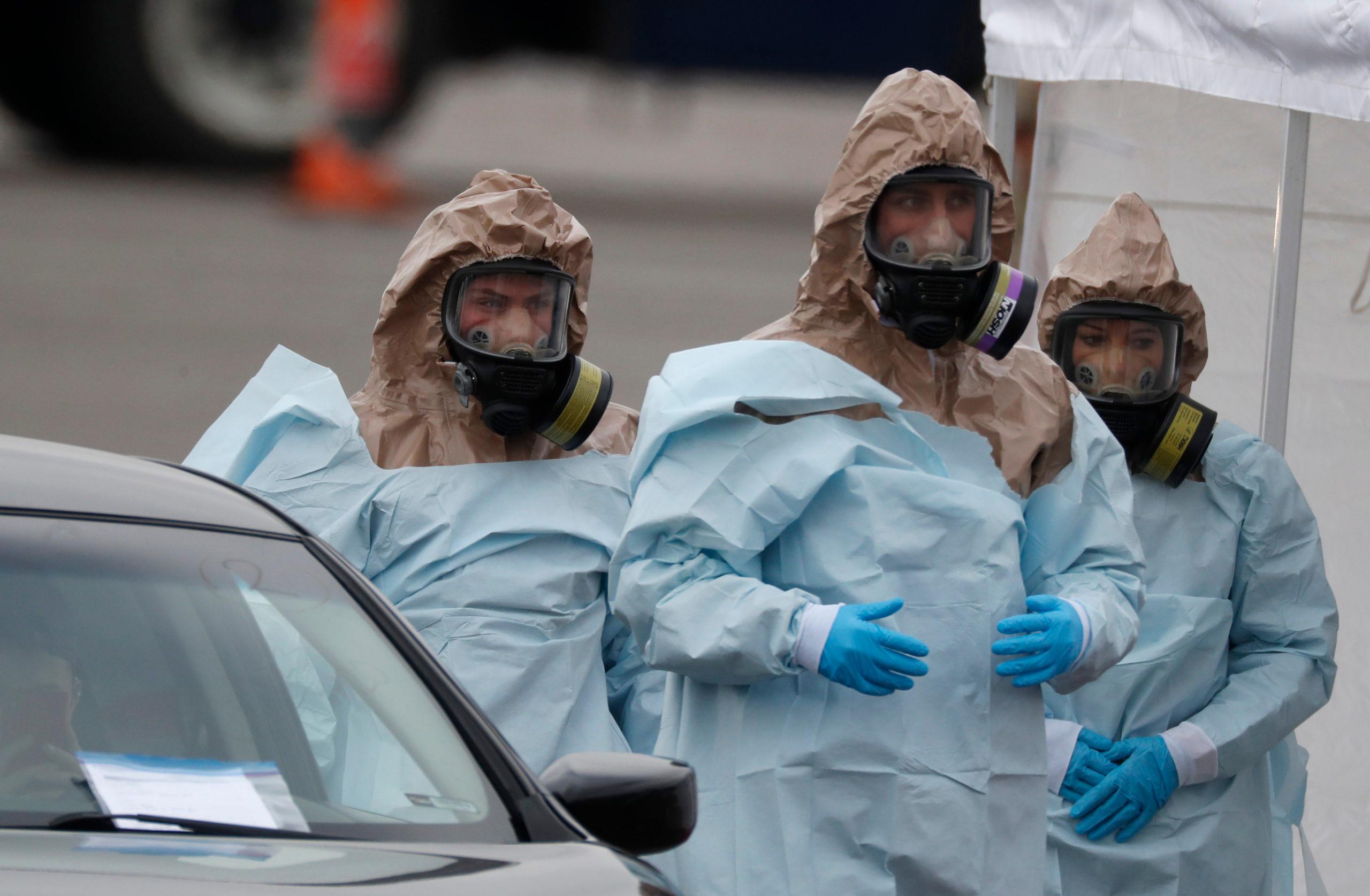
When the National Guard is called up to deal with local emergencies, it's usually a wildfire or flood. But as Colorado has struggled to confront the threat from the new coronavirus, some of the state’s National Guard troops now have a new — and different — mission: To help stop the spread of the disease.
Gov. Jared Polis is expected to increase the number of Colorado National Guard members to full-time status in the near future and use them to help with coronavirus response needs across the state. As governor, Polis is the commander and chief of the guard.
Colorado is still waiting to see if the federal government will pick up the tab, and Polis' staff say they expect an answer soon. But the National Guard has funded 30 positions in Colorado, taking some burden off of the state.
Guard troops have already played a significant role as early responders, helping to stand up and staff five drive through testing sites around the state. About 70 were called up to help with COVID-19 testing.
“I want to express our profound gratitude,” said Polis at a news conference on Monday. He also said he’d sung their praises to President Donald Trump and Vice President Mike Pence during an earlier phone call.
Micki Trost, a spokesperson for the State Emergency Operations Center, said when the ask for testing help came in, the guard was ready to support within 24 hours.
"The Colorado National Guard sent medical personnel who assisted with the actual swabbing of the test, as well as logistical personnel who assisted with setting up the sites and making sure everything went smoothly,” Trost said.
Colorado National Guard Brig. Gen. Scott Sherman said the men and women involved in this mission are basically the guard’s first responders, trained to deal with chemical, biological, radiological and nuclear incidents — think along the lines of attacks with weapons of mass destruction.
“So all these personnel are specially trained to do this kind of thing,” Sherman said. “They have the specialized equipment and they’re very familiar working around a biological [hazard] like this."
At the drive-thru testing sites, guard troops were able to conduct about 35 to 40 tests an hour, but only because the number of tests available was limited to only around 100 to 150 people per site, Sherman said.
But, he adds, the mission was about more than identifying individual cases.
“This is just helping the epidemiologists map out where they think that coronavirus has spread around the state. It’s made for modeling,” he said.
The testing mission wrapped up on March 23. Since then, one guardsman has tested positive for the coronavirus and is being treated. The rest are in the middle of their two-week self-quarantine. Sherman said the guardsmen were excited to use their training and help their fellow Coloradans.
“There was really no hesitation on their part. They were just happy to go out and help the community,” Sherman said.
Currently, the guard finds itself in a little bit of a lull, waiting for its next step, which almost everyone involved believes will be coming. Right now they are preparing for a wide range of possibilities — from logistics to aviation support to medical surge capabilities.
Lt. Col. Will DiProfio, director of Joint Plans and Operations for Military Support, is the one who coordinates with the governor and state emergency operations center when they request National Guard resources. He said he’s ready for that call.
“We come from the communities that are affected by the virus,” DiProfio said. “So we have a vested interest in doing everything we can to support the governor, the state emergency operations center, and the citizens of this great state.”
Editor's Note: The number of National Guard-staffed testing sites in the state has been updated. The earlier, erroneous number, which is included in the audio version of this story, came from Gov. Polis during a press conference.








